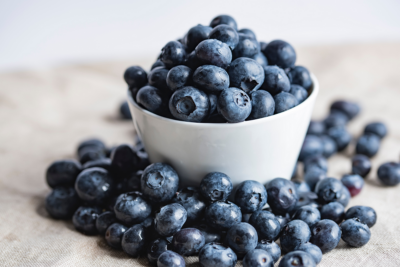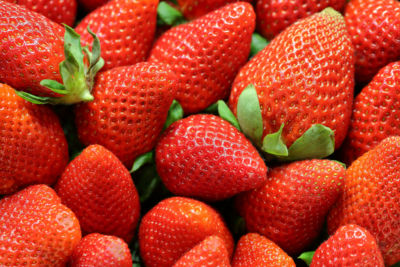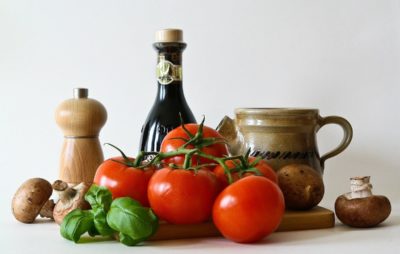Looking for sources of lean vegan protein? Read our guide to the best high-protein, low-fat vegan foods to add to your diet.
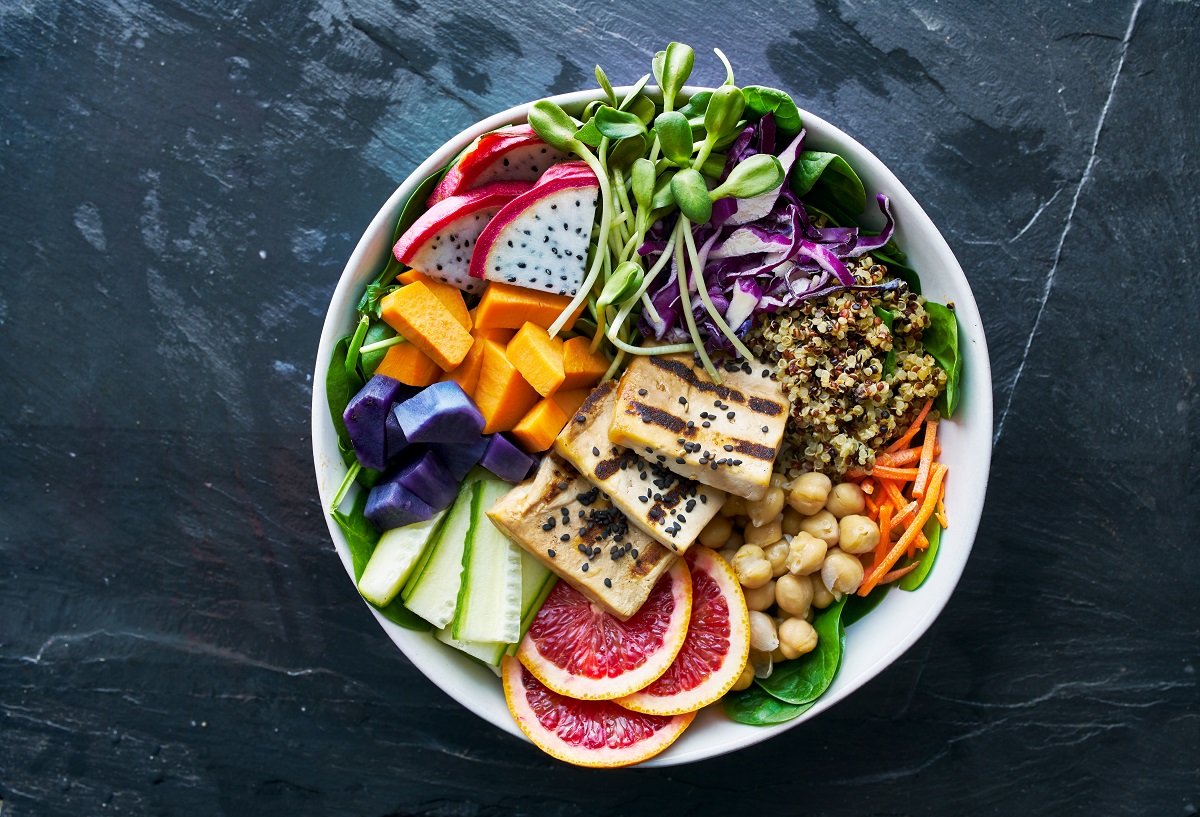
Foods such as chicken breast and egg whites are often hailed as fitness foods due to their high protein and low fat content, and many people believe animal foods are essential to meet their protein requirements.
However, the growing number of elite athletes thriving on a plant-based diet proves that there are plenty of lean vegan protein sources.
Whether you want to optimise your macronutrients or reduce your intake of saturated fat, keep reading for our guide to the best high-protein, low-fat vegan foods.
Where do vegans get protein?
Protein is abundant in plant-based foods. Vegans can get sufficient protein from the following sources:
- tofu
- tempeh
- seitan
- legumes (beans, peas, lentils)
- grains (quinoa, rice, bulgur, oats, etc)
- nuts
- seeds
- fruits and vegetables have small amounts of protein
One of the most persistent myths about veganism is that vegans can’t get enough protein without animals in their diet, but this couldn’t be further from the truth.
How much protein do vegans need?
The British Nutrition Foundation recommends 0.75 grams of protein per kilogram of bodyweight everyday for adults. However, individual protein intake depends on many factors including current activity levels and fitness goals.
According to the British Nutrition Foundation, the average daily protein intake for adults aged 19-64 years is 76 grams per day, which exceeds the recommended amount.
If you eat a variety of foods that contain protein with each meal, you don’t need to worry about getting enough protein!
Best High-Protein, Low-Fat Vegan Foods
Seitan
Made using vital wheat gluten, seitan is a popular vegan meat alternative and is one of the best sources of plant-based protein.
According to USDA, seitan contains around 75 grams of protein and 1.85 grams of fat per 100 grams and has all nine essential amino acids. Because it doesn’t contain much of the amino acid lysine, consider pairing seitan with foods such as legumes.
Although it’s sold in supermarkets, you can also make seitan at home. It’s a versatile food that you can enjoy in any dish that typically uses meat, such as salad bowls, stir fries, burritos, curries and sandwiches.
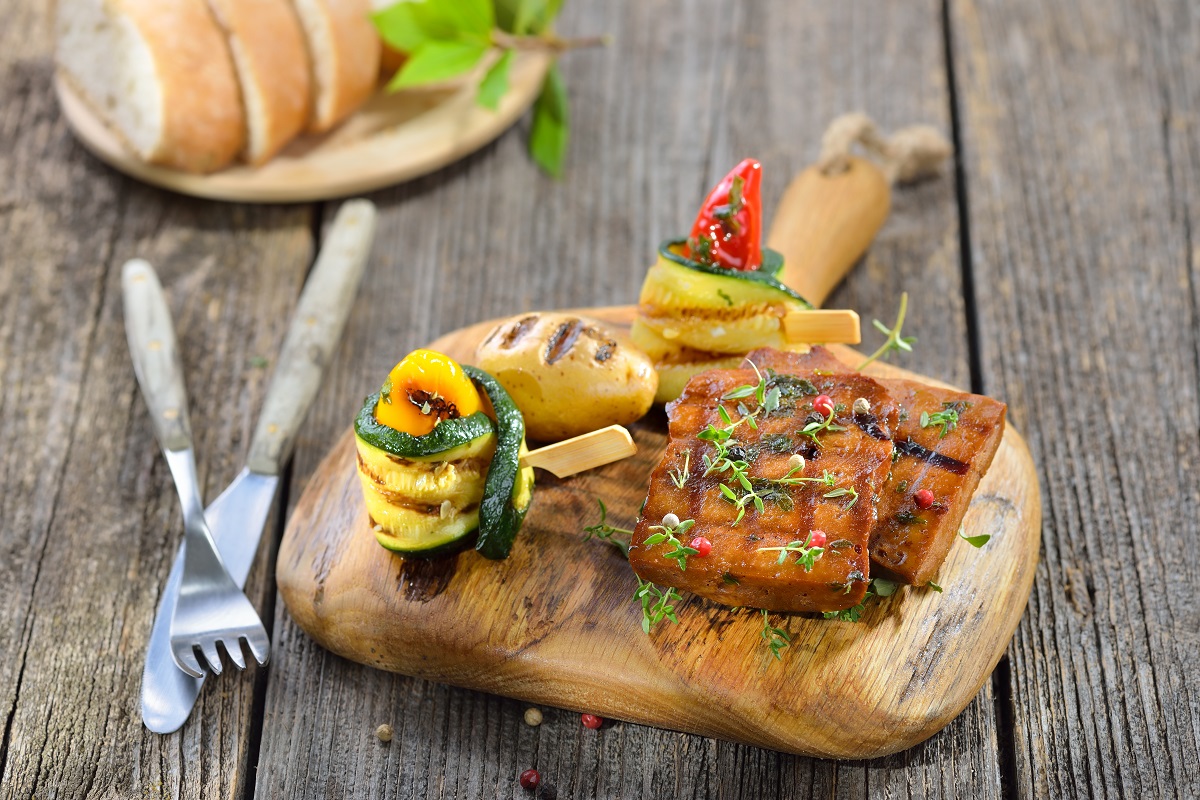
Tempeh
If you’re looking for a high-protein meat alternative to replace chicken in your diet, tempeh is a great place to start. This soy product may not sound appealing on its own, but you’ll be pleasantly surprised by how tasty it is!
According to USDA, tempeh contains 20 grams of protein and 10 grams of fat per 100 grams and contains all essential amino acids, making it a complete protein source.
You can include tempeh in an array of healthy vegan dishes, such as salads, sandwiches and stir fries.
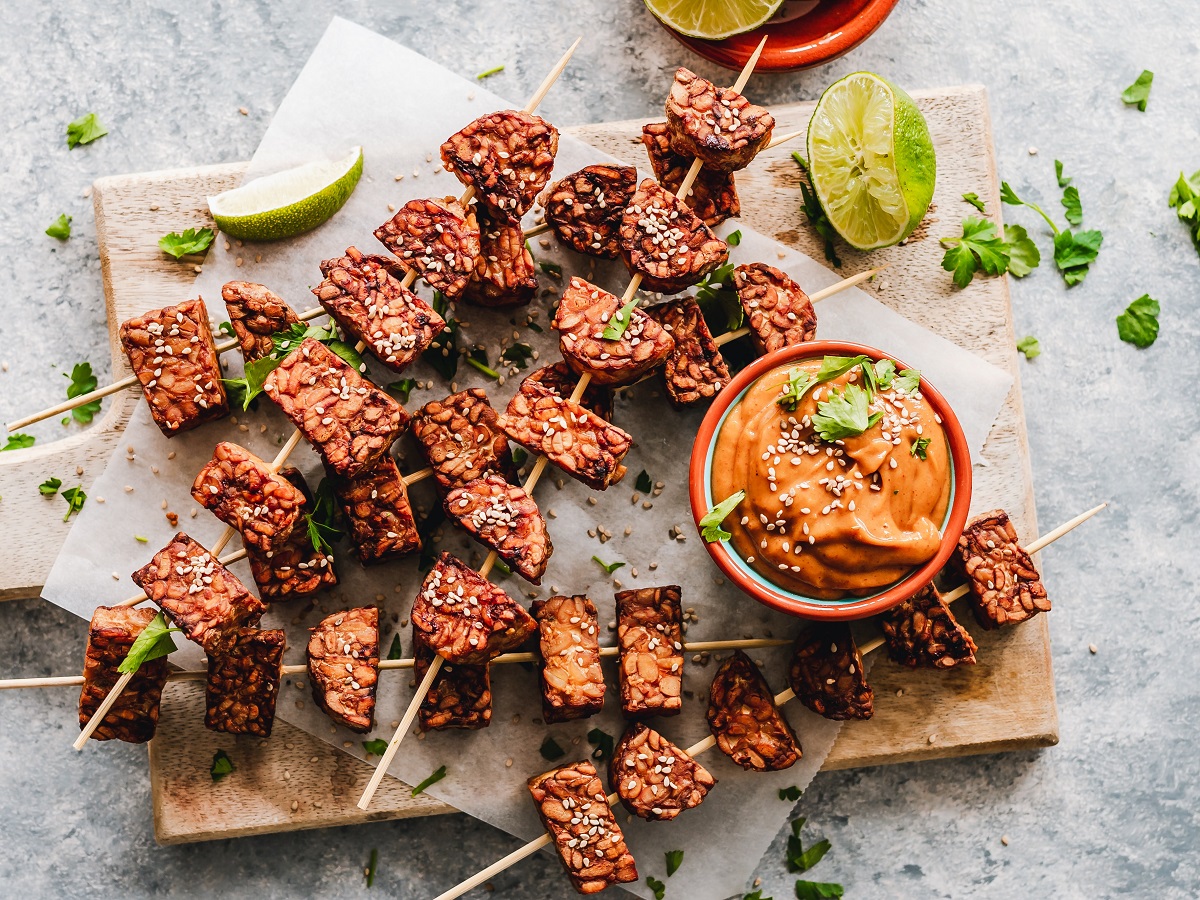
Chickpeas
Do you prefer to avoid meat alternatives? Try adding chickpeas to your diet for a boost in plant-based protein.
Chickpeas have an impressive nutritional profile and work well in many vegan dishes and snacks, offering 20 grams of protein and 2 grams of fat per 100 grams, according to USDA.
Although they’re not considered a ‘complete’ protein source on their own, this doesn’t matter if you’re eating a range of different sources of protein everyday.
Use chickpeas in healthy veggie curries, salads and jacket potatoes, or even mash them up for a tuna alternative.
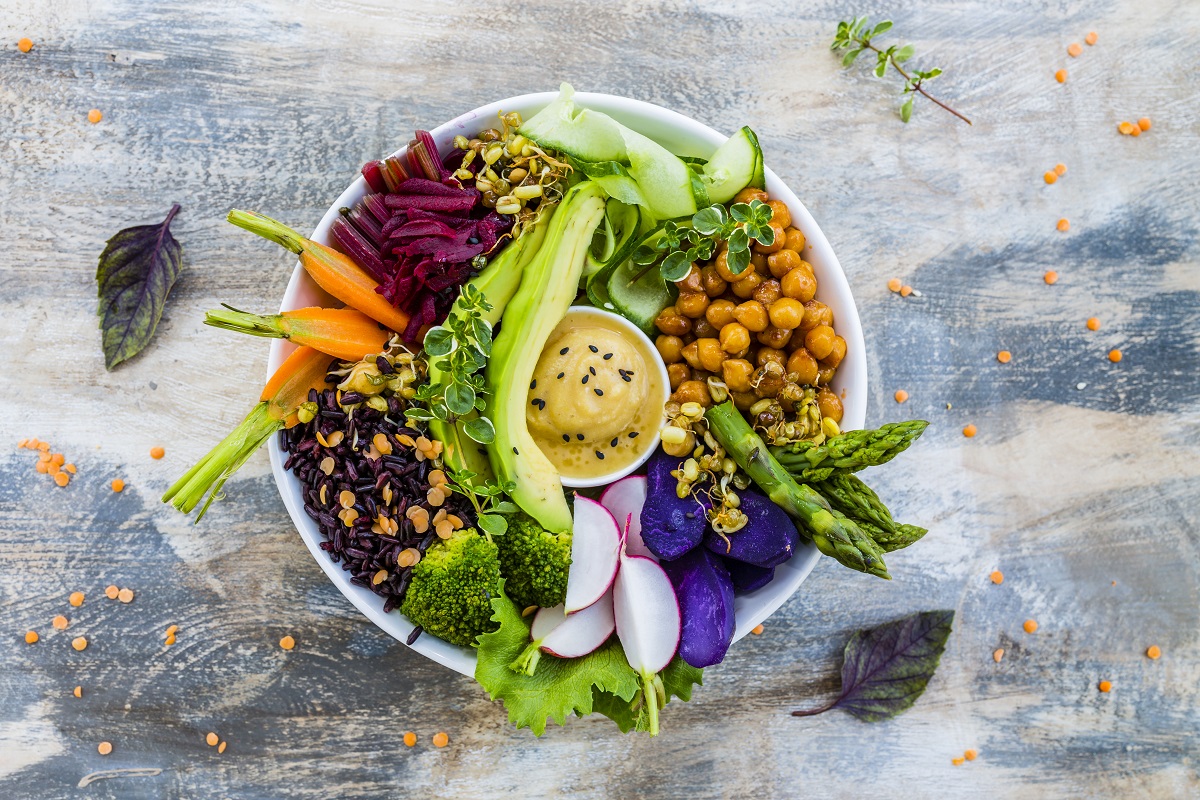
Tofu
There are so many things to love about tofu and it’s one of our favourite high-protein, low-fat vegan foods. Its unique texture and properties make it ideal for creating meat and fish alternatives and it also absorbs flavour well, meaning you can really get creative if you want to. Other soya products like edamame beans and soya milk will also give your meals a protein boost.
The nutritional profile can vary from brand to brand, so it’s worth checking the label (for example, The Tofoo Co.’s Naked Tofu has 16.5 grams of protein and 7.8 grams of fat per 100 grams). Tofu is a fantastic vegan protein source for athletes and fitness enthusiasts and it also contains all essential amino acids, making it a complete protein.
When it comes to cooking with tofu, the options are endless. Enjoy it in salads and buddha bowls, stir fries, wraps and so much more. You can even scramble it for your breakfast as an alternative to scrambled egg.
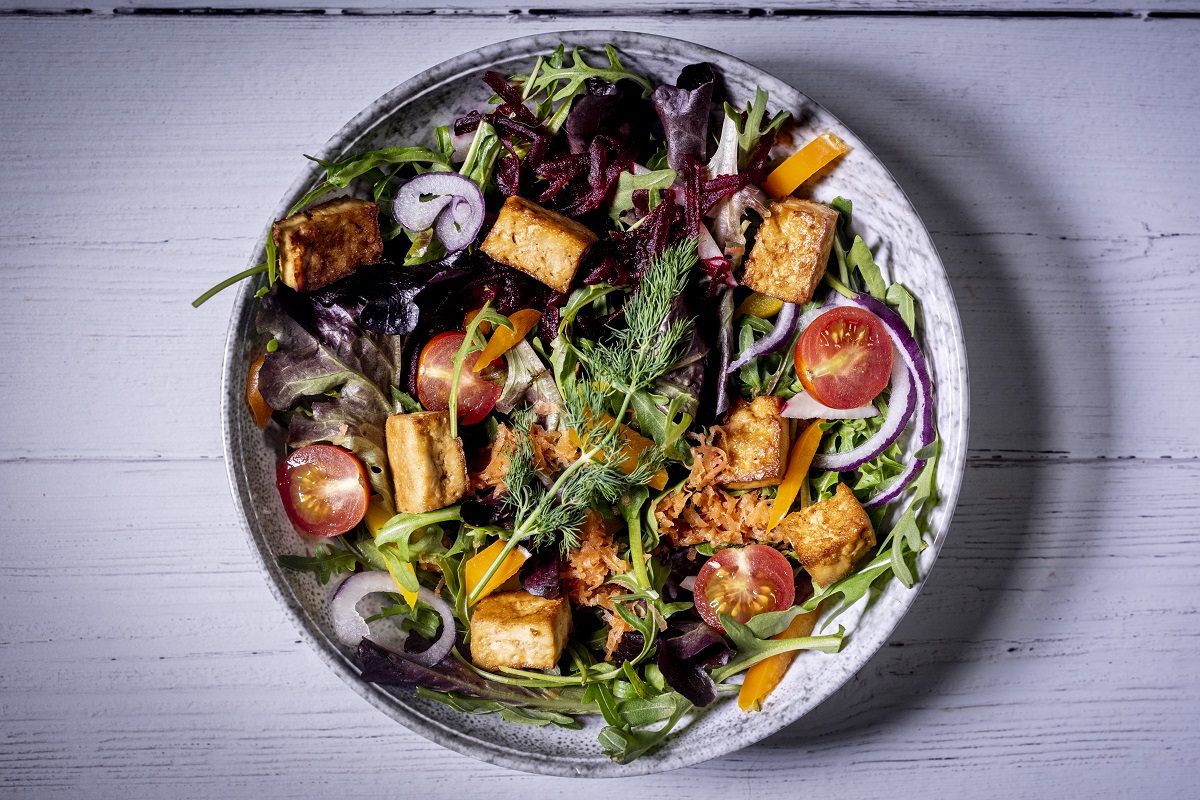
Lentils
Legumes are great sources of lean vegan protein, including lentils, peas and beans.
Lentils contain 9 grams of protein and 0.38 grams of fat per 100 grams, according to USDA. The best thing about lentils is that they’re easy to combine with other protein sources. They can be used in all kinds of dishes including salads, soups, curries and even Bolognese.

Oats
Oats aren’t just high in fibre and other essential nutrients, they’re also a handy source of vegan protein.
According to USDA, rolled oats contain an impressive 13.15 grams of protein and 5.89 grams of fat per 100 grams. And it’s super easy to boost the protein content of a bowl of oatmeal even further – just add a dollop of nut butter and a sprinkle of seeds!
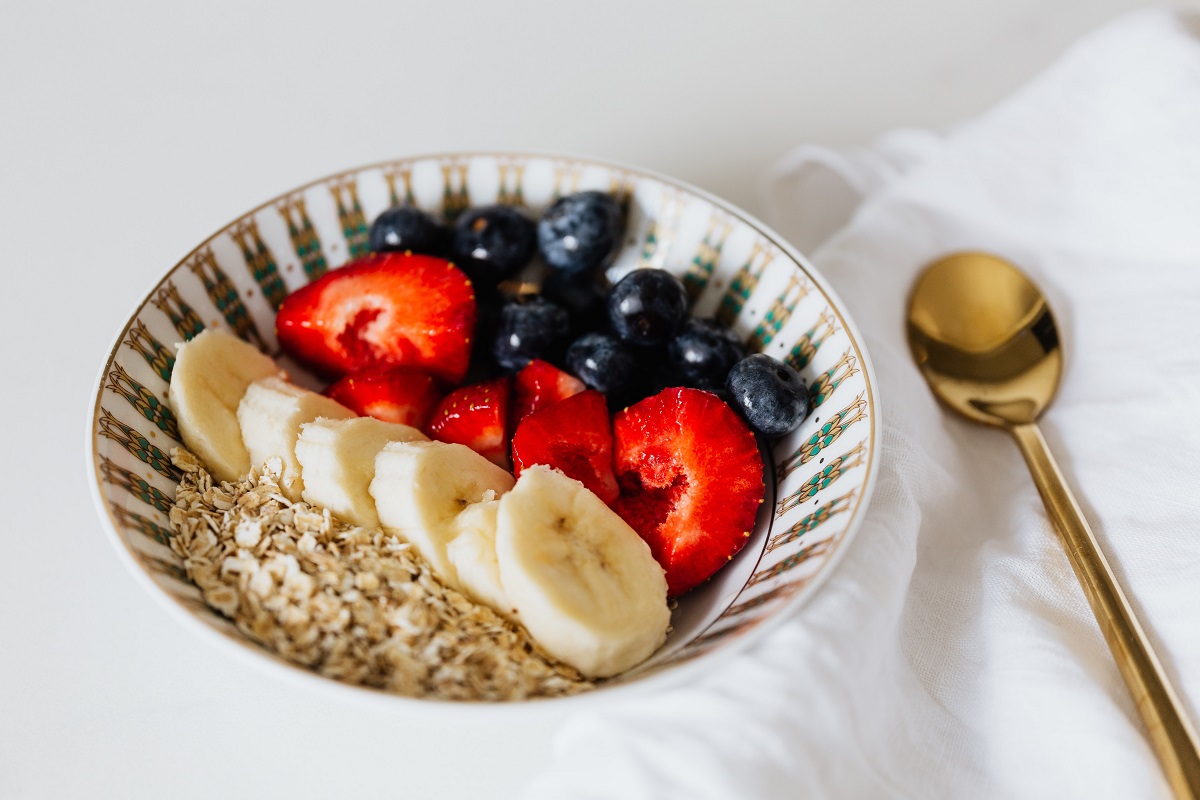
Why not sign up for our free 31-day challenge for more vegan tips and resources? Try vegan with us and we’ll send you meal plans, recipes and a celebrity cookbook!

